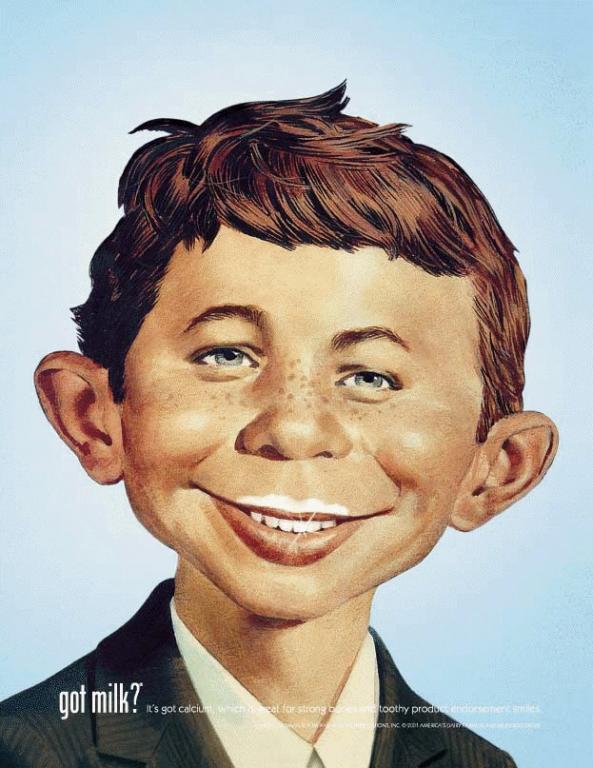
Mad Magazine is ceasing publication after a 67-year run. The satirical magazine–which was a formative influence on young Baby Boomers like me–will still be available (sort of) using reprinted material and in special end-of-the-year editions, but as an on-going, regular periodical, it will come to an end this Fall.
Mad started as a comic book making fun of other comic books, eventually moving on to parodies of just about everything. It then morphed into a magazine, complete with fake ads making fun of products, fake news making fun of current events, fake features making fun of everything else, and cartoons that lacked redeeming social value but were just funny.
When we think of satire, today we immediately think of politics. Mad would target politicians in an equal-opportunity way–of the two brains behind the magazine, Bill Gaines was a conservative Republican and Al Feldstein was a liberal Democrat–but the broader subject of mockery was the culture itself.
Mad parodied movies, TV shows, commercials, and pop culture as a whole. It also mocked fashions, trends, and what popular kids considered “cool,” including hippies, drugs, and rock music. But I don’t remember it ever being mean-spirited, much less racist or antagonistic to any group a person couldn’t help belonging to. Also it made fun of the worst aspects of school and the teenage social scene, all of which endeared the magazine to young misfits like myself.
The magazine declined from its glory days in the 1960s. Some say it jumped the shark in 2001 when it moved from New York City to beautiful downtown Burbank. Whereupon it started taking actual advertising–as opposed to the hilarious parodies of advertisements that it had become known for–and concentrating on politics. Recently, under new ownership, it has been piling on Donald Trump like the rest of the media, oblivious that this was making it seem more conformist and less funny.
In my day, many parents, teachers, and other authority figures worried that Mad was having a bad influence on the young, encouraging a spirit of rebellion. Well, it did in my case, but it was a good kind of rebellion. Its satire of American culture–including the pop culture and youth culture of the 1960s–made it easier to resist. I learned how not to take it so seriously. It turned me into a cultural critic at a young age.
As classical literary theorists have pointed out for centuries, comedy–particularly satire–is intrinsically conservative. It pre-supposes a standard against which its subject and finding it wanting. The purpose of comedy, according to the ancients, is to ridicule vice. That means a classical comedy may have lots of vice in it, but the vice is presented as foolish and contemptible, presented in such a way that the audience does not want to imitate it. Thus, comedy has a moral purpose and structure.
This is why comedy is so terrible today, and why it is failing even in Hollywood. Instead of ridiculing vice, most comedians today ridicule virtue. Instead of satirizing the evils of society, satirists–lacking a moral framework–resort to mere mockery. This can be funny. Just as vulgarity and obscenity, also the stock and trade of today’s comics, can be funny for its violation of social expectations. But when the social expectations have lowered so much that there are no more traditional taboos and nothing seems shocking, that approach to comedy will no longer have an effect. In the meantime, new taboos are being erected and are taken so seriously that laughing is not allowed. Already, old-school comedians like Jerry Seinfeld are saying that political correctness will destroy comedy.
When President Trump gave the Democratic Presidential candidate Pete Buttigieg the nickname “Alfred E. Neuman,” after the Mad icon and cover boy, the standard bearer of the Millennials said that he had to google the reference.
What, me worry?
Yes, me worry.
Illustration: Mad Magazine’s Alfred E. Neuman, Baris@rio via Flickr, Creative Commons License














